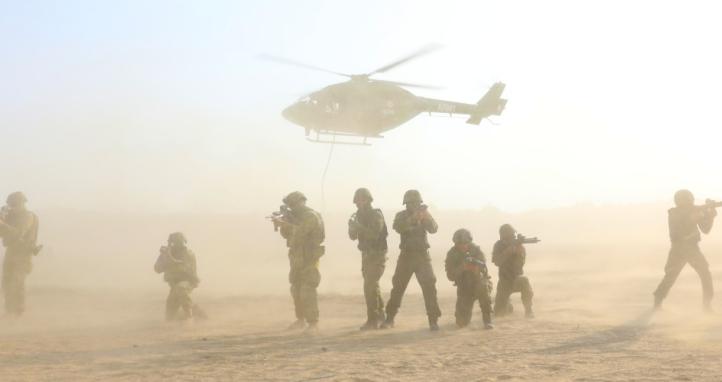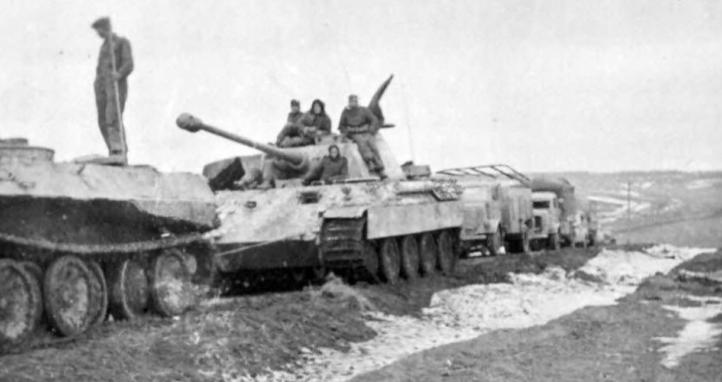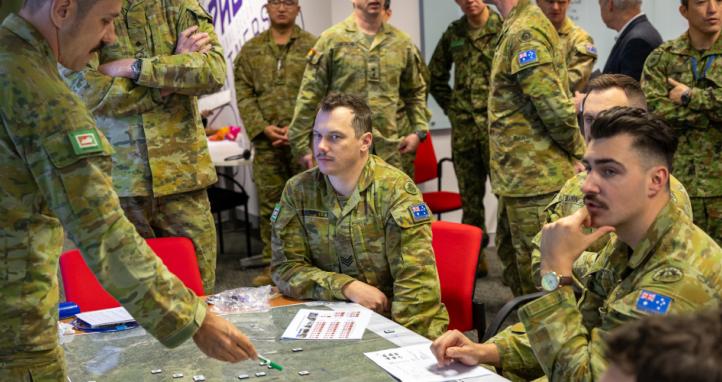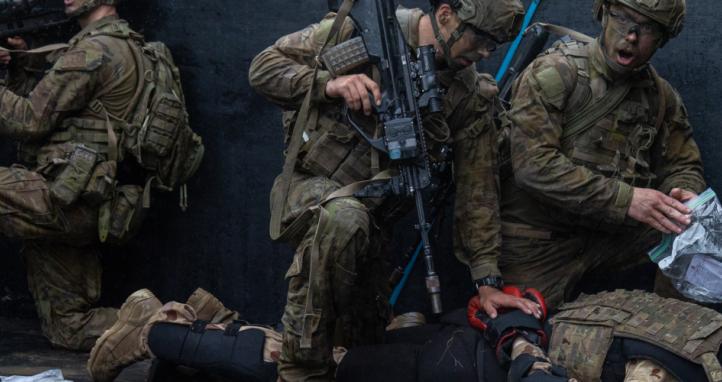Writing a piece on what I’ve learned about mentoring from the comforts of a tent in 36 degree Papua New Guinea weather is an interesting proposition. I am confident it is higher than 36 degrees but the WBGT (Wet Globe Bulb Temperature) is a handheld device and doesn’t work inside the tent and the mercury thermometer tapped out at 42 yesterday.
As I sat down to write, I questioned whether or not to discuss the fact that my soldiers got as much out of the experience as those they were mentoring; not only professionally, but life experience as well. 'I never used to like art', quipped one of my soldiers, clutching an arm full of various ‘traditional’ ‘art’ pieces, all on canvas by a local artist he had befriended. He didn't know at the time that his purchases would most likely pay for the artist’s son to attend school, Year 9, for the entire year, and, in new school shoes. But that is evident.
I also questioned whether or not to discuss my lessons learned or rather what I think works. I chose somewhere in the middle, sitting on the fence, and offer my observations in writing. The Contingent will write a series of documents to highlight whether we learned anything, something, lots. A blog though is personal, and personally, I’ve made some observations.
My top 5:
1. Lessons are only observed or identified until they are learned. So, find them and turn them into learned. I’ve read and listened to my Team’s lessons and observations and, for the most, they resonate with other mentoring team titbits, notably those from the Philippines Mentoring Team. The common tips identified by successive mentoring teams suggest these observations are not unique to the theatre or the partner nation or organisation, so the lesson? Prepare. Learn.
2. Don’t sell what you can’t deliver – you’re not going to be able to get, nor deliver, the world. Be realistic in what you can achieve. Be creative and sustainable – if it takes reclaiming timber and nails from a disused house, then taking that timber and holding it all together with spray painted electrical tape (the end result being an urban hide) and it works, then do it.
3. Take the best people – not everyone is cut out to assimilate local customs and traditions and doing so for weeks on end with little reprieve (not only from the heat, mozzies and ‘doxy dreams’). The best people are the right people; they may not be your best marksmen, logistic planners or gun runners, but they will be the ones that can build relationships and respect custom and culture, turn up for a patrol order march at 0400 amongst chanting and singing soldiers and embrace it.
4. Commit – it doesn’t take effort to mentor, it takes commitment. Understand what you’re doing, why and why you’ve been asked to help, and commit wholeheartedly to ensuring someone else achieves greatness.
5. Be humble – It amused me one day, to sit in a meeting with all the Company Commanders and the gripe was that transport dropped a platoon off at the wrong objective! That happens to Australian Army units all the time! If you believe, feel or think that you, your team, your country or your organisation is somehow superior, or you have such a lack of respect to those you are mentoring to suggest they are inferior, first, you’re in the wrong job, but second, consider that somewhere back home, there are officers lamenting because the ration plan failed or transport went to the wrong location!
Ultimately, I don’t know what I’d do ‘better’ next time, I don’t know what will work in a different theatre or in a different time. I would certainly try a few things differently but I don’t know if that would change the outcome and I don’t know if it matters – if something isn’t working then I wouldn’t wait until the end or until ‘next time’ to try something different. I would follow the same principles – being a good human – and make sure I take the best possible team, but being adaptive and flexible is part of the journey. It’s the personal relationships that allowed us to be responsive. It was being humble and respectful that ensured my Team earned equal respect and allowed us to support our regional partner, to crouch down side by side, and help achieve their missions and their goals, and share their successes.









